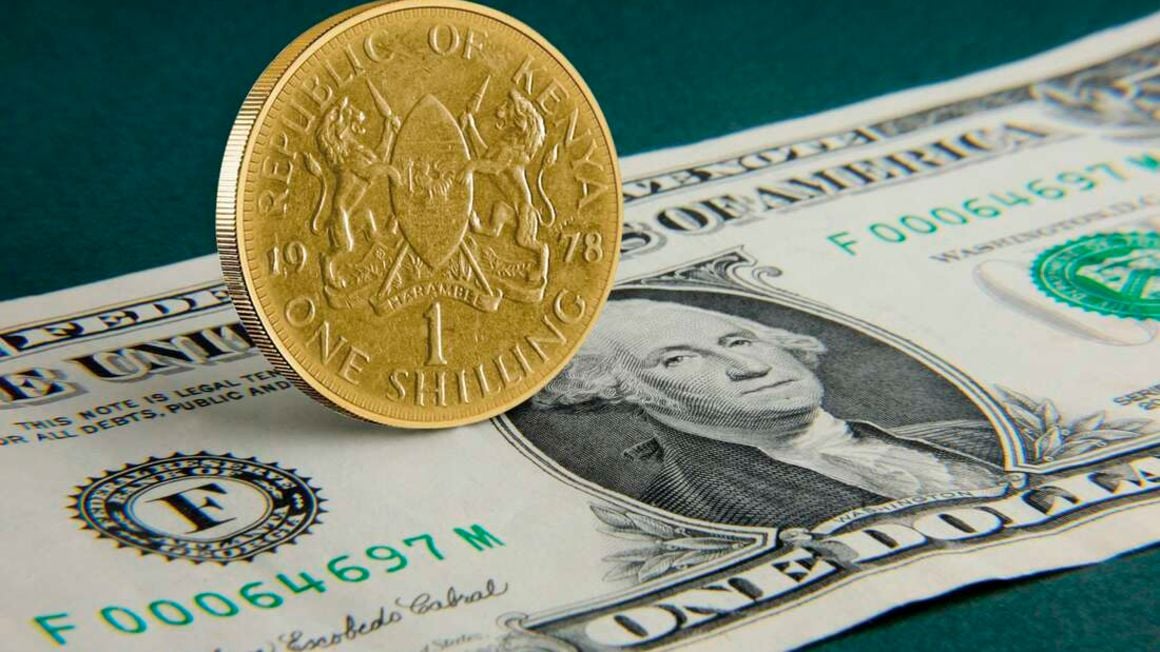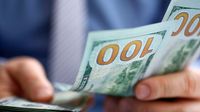
The volatility in the exchange rate market has slowed dollar trading among lenders or interbank deals, causing a scarcity of the US unit. FILE PHOTO | NMG
Retail dollar buyers are now paying up to Sh130 per unit in Kenyan banking halls, underlining the large margin between the official printed rate and the market rate for customers.
Several large banks are now selling the greenback at between Sh130 and Sh131 per unit, while buying the same at between Sh117 and Sh119, with bankers saying the higher prices have been driven by demand and the cost of accessing the hard currency on their part.
The official shilling-dollar exchange rate published by the Central Bank of Kenya (CBK) stood at 121.33 units Monday. The shilling has depreciated by 6.8 percent against the dollar since the beginning of this year, attributed to strong demand for the American currency.
Equity Bank and I&M Bank quoted the selling price of the dollar at Sh130.35 and Sh130.75 per unit respectively yesterday, while buying at Sh118.75 and Sh119.85.
Co-operative Bank was selling the US currency at Sh131.40 per unit and buying at Sh117.15, as per quotes listed in its banking halls.
The higher effective rate for those buying dollars in the market has been highlighted for months by importers. Access to the greenback has also proved difficult for some due to banks being unwilling to sell to each other, which makes it hard for smaller players to fulfill their orders from clients.
The volatility in the exchange rate market has slowed dollar trading among lenders or interbank deals, causing a scarcity of the US unit.
“The foreign exchange market is a matter of demand and supply. Some customers are only willing to sell you dollars at a higher rate than the published mean rates. You then add a margin to that,” said a bank executive.
The exchange rate has long been a sensitive issue, with most players preferring silence for fear of reprisals from the central bank
Earlier this year, manufacturers had complained that a dollar shortage was forcing them to buy the greenback at a premium to the CBK’s official average exchange rate.
The regulator, however, dismissed the possibility of a parallel exchange rate developing in the country, saying the market has enough dollars to meet demand from importers and corporates.
The widening of the bid-ask spread — the difference between the price a dealer buys and sells a currency — in the foreign currency to a margin of more than Sh10 is also indicative of the high demand for dollars amid a perceived drop in supply, according to bankers.
The scramble for the dollar means that buyers — both for trading and hedging purposes — keep bidding higher for the currency.
Official data on forex holdings by the private sector in local banks have backed the claims that clients are holding onto their dollar stocks tightly.
By the end of July, foreign deposits in local bans stood at the equivalent of a record Sh905 billion, pointing to market distribution inefficiencies and hoarding rather than an outright shortage of forex in the country.
Global economic uncertainty arising out of the Russia-Ukraine conflict and high inflation in western countries has also strengthened the dollar — a safe haven asset — meaning that it pays for one to hold the currency for capital gains and a hedge against potential future economic upheavals.
→ cmwaniki@ke.nationmedia.com






No comments :
Post a Comment